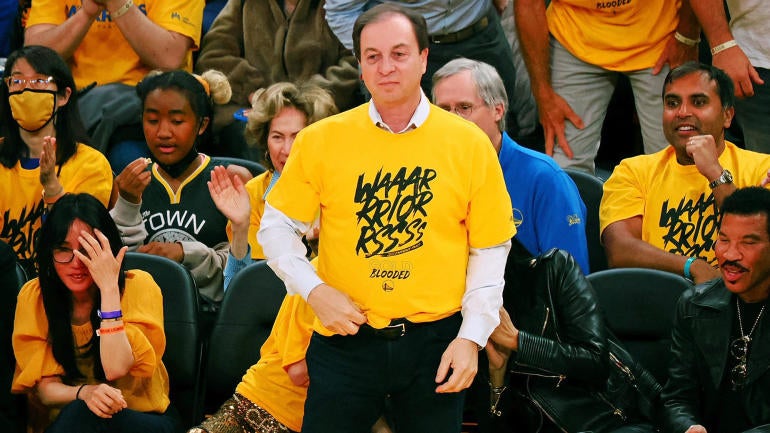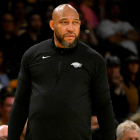
Golden State Warriors owner Joe Lacob has been fined $500,000 by the league for making "unauthorized communications regarding collective bargaining," according to Adrian Wojnarowski. The fine is one of the largest in NBA history.
Earlier this month, Lacob made an appearance on the "Point Forward" podcast with Andre Iguodala and Evan Turner. At one point, the topic turned to the Warriors' $346 million total payroll last season, which included a record $170 million luxury tax bill. Here is what Lacob had to say:
"The hardest thing of all is navigating this luxury tax, unfortunately. I went back to New York this week for labor meetings. I'm on the committee. And you know, obviously, the league wants everyone to have a chance and right now, there's a certain element out there that believes we "checkbook win," we won because we have the most salaries on our team."
"The truth is, we're only $40 million more than the luxury tax. Now, that's not small but it's not a massive number. We're $200 million over in total because most of that is this incredible penal luxury tax. And what I consider to be unfair and I'm going to say it on this podcast and I hope it gets back to whoever is listening … and obviously it's self-serving for me to say this, but I think it's a very unfair system because our team is built by — all top eight players are all drafted by this team."
Andrew Wiggins, of course, was not drafted by the Warriors, but the team does have his bird rights, which means they can go over the cap to re-sign him. And regardless, Lacob has a point. If you draft and develop good players, it becomes exponentially more expensive the longer you keep them together. With the punitive repeater penalties for teams who have paid the luxury tax in three of the previous four seasons, the rules disincentivize teams and owners from maintaining their cores for an extended period.
At the same time, winning a championship should be difficult, and it's hard to feel sorry for billionaire owners complaining about a luxury tax bill. The value of franchises has skyrocketed over the years, and owners could always sell their team for a massive profit if they feel its gotten too expensive to stay in the game.
In any case, it will be interesting to see what changes, if any, are made to the league's luxury tax system in the next collective bargaining agreement. The current one expires at the end of the 2023-24 season, and the league and the players have already started discussions on a new deal.






















